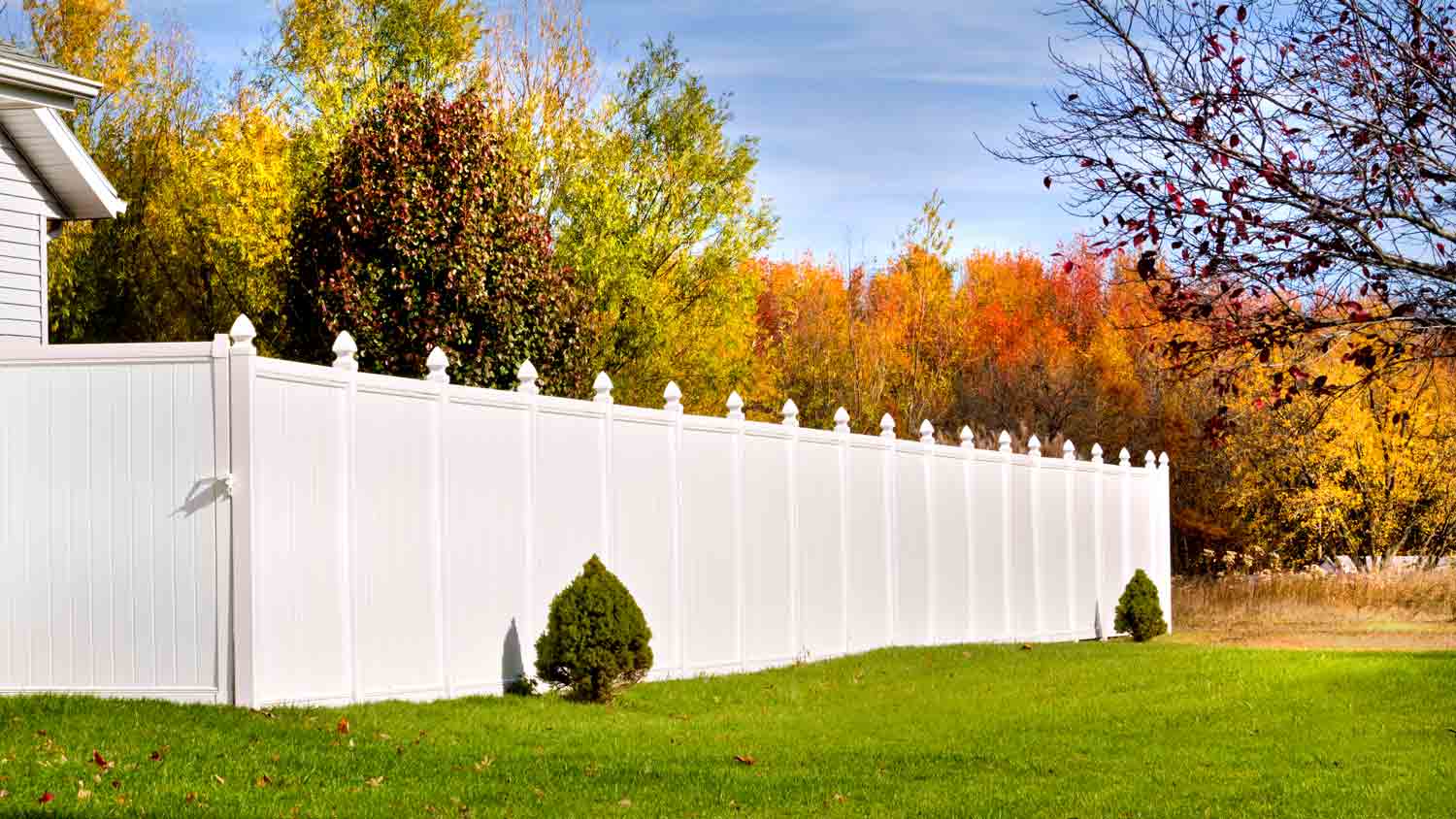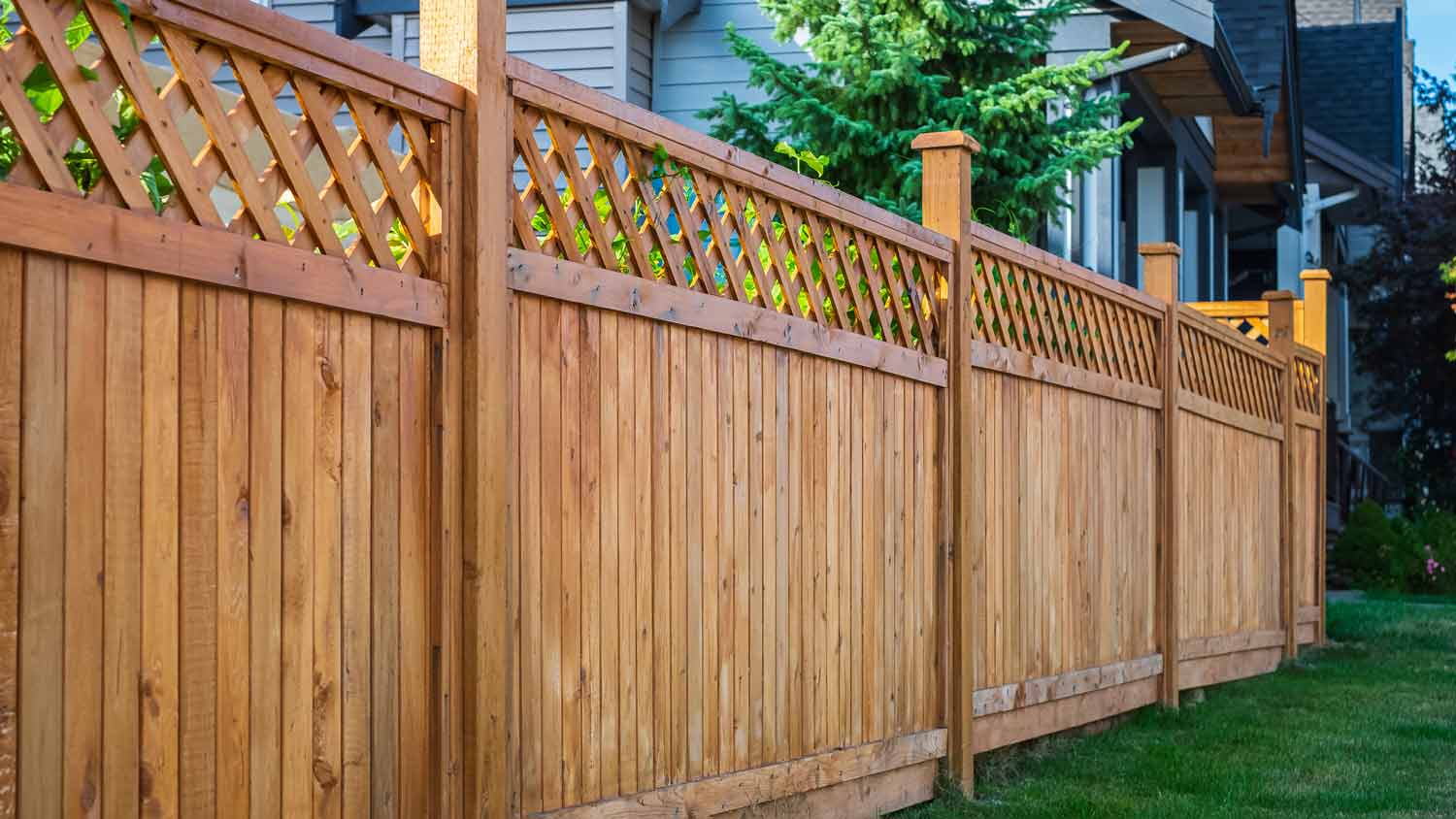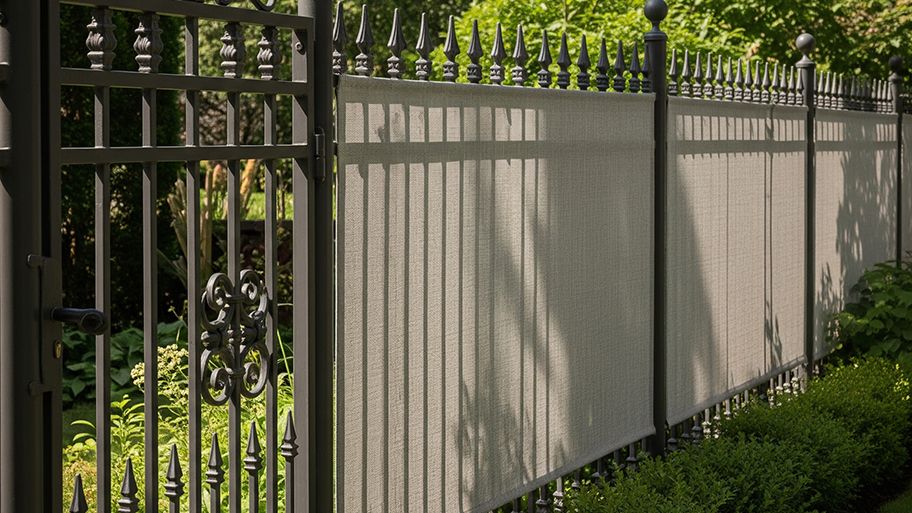
A new fence adds privacy, improves safety, and even boosts curb appeal. But how much does fence installation cost? Find out in this guide.
There's more to a fence than meets the eye


Composite fences are considered the more eco-friendly option.
Vinyl fences are more budget-friendly.
Both are durable, low-maintenance and can last decades.
Looking to make your yard more private and secure? You have lots of fence options, including vinyl and composite. Learn more about composite vs. vinyl fences so you can choose the option that's right for your home.
Composite fences and vinyl fences appear similar, but looks can be deceiving. There are numerous differences between the two, notably their material. Composite fences are made from a mix of recycled plastic and wood, while vinyl fences are made solely from vinyl.

Composite fences are made of a combination of wood and plastic material that's extra durable and strong. These fences are available in various colors and styles, such as a classic white picket fence or privacy panel fence.
| Composite Fence Pros | Composite Fence Cons |
|---|---|
| Eco-friendly | Higher price |
| Low maintenance | Can fade |
| Durable | Can’t be painted |
Best for:
Green-minded homeowners
Households that want a low-maintenance privacy fence option
Homeowners who want the beauty of wood without the upkeep
One of the biggest draws of composite fences is that they're much more environmentally friendly than other options. They are made from recycled materials rather than from fresh resources. They don't need to be chemically treated like certain types of wood fences.
Composite material is also very durable. It can withstand years of exposure to wind, rain, and other elements while still looking good. Many composite fences come with a warranty, and most will last for at least 20 years.
The fences are also easy to care for. You don't have to stain or paint them to keep them looking fresh. The boards won't warp or rot.
The biggest drawback of composite fences is their price tag. Compared to vinyl or wood fence cost, the price of composite is way more. However, while composite fences have a higher upfront price compared to vinyl or wood, their long lifespans and limited maintenance requirements often make them an affordable option in the long run.
Another potential disadvantage of a composite fence is that it can fade in the sun. Fading may be particularly noticeable on darker-colored fences. If your yard gets a lot of sun, it may be best to choose a composite fence in a lighter color. It’s not a good idea to paint composite fencing, either, as the chemicals in the paint could damage the composite material. So, if you want to change your fence’s look with a fresh new color, composite fencing isn’t a good option.

Vinyl fences are made from PVC, a hard, sturdy type of plastic. Like composite fences, vinyl fences come in a range of styles, from classic picket fences to privacy panels.
| Pros | Cons |
|---|---|
| Budget-friendly | Limited options |
| Low maintenance | Can warp |
| Long life | Not eco-friendly |
Best for:
Budget-conscious homeowners
Homeowners looking for a low-maintenance fence option
Households looking for a long-lasting fence
The cost of a vinyl fence is less than that of a composite fence. Like composite fences, vinyl fences last for 20 years or longer, giving you a fair amount of bang for your buck.
While you don't have a wide range of styles to choose from where vinyl is concerned, there are a few options out there, including fences with closely spaced pickets and semi-private fences with openings between the pickets. Lattice-top fences are also available. A local vinyl fence installer can help you choose the style that would work best for your property.
You don't have to stain, paint, or seal a vinyl fence to take care of it. The only upkeep your fence may need is the occasional cleaning.
Vinyl isn't an eco-friendly material. You can't recycle an old vinyl fence, and the material releases potentially harmful chemicals during production.
Another issue with vinyl is the fact that it's not all-weatherproof. High heat can cause the panels or posts to warp, and extreme cold can cause the vinyl to crack. If you live in an area that's subject to weather extremes, you may want to choose a different type of fence.
So, when it comes to vinyl vs. composite fences—which type is right for you? See how each option stacks up.
Composite fences can look more attractive than vinyl fences, which often tend to be shiny, white, and plastic-looking. A composite fence can imitate the look and feel of wood. Composite also comes in a range of colors or styles.
Your style options are much more limited with a vinyl fence. However, composite fences come in a range of colors and can be customized to truly reflect your home's aesthetic and style.
You can get decades of life out of either a composite or vinyl fence, so this one's a tie. Both options can easily last you 20 years, if not more.
Vinyl fences typically cost less than composite, mainly because the material is more common and easier to find. Since vinyl is low-maintenance, it also has low upkeep costs.
While you may prefer to hire a local fence installer for either a composite or vinyl fence, composite fences have an easier installation process. The panels weigh less than vinyl and are designed to slide into place.
Another tie, as composite and vinyl fences are both pretty easy to maintain. Unlike other fence types, you don't have to worry about them rotting or rusting if you don't seal or paint them.
The most care and attention either fence type might need is the occasional cleaning, particularly if you see dirt or stains start to build up. You can clean vinyl or composite fences using regular soap and water. For stubborn stains, you may need to break out a soft-bristled brush.
Made from recycled materials, composite is the hands-down winner when it comes to sustainability. Many composite fences are made from materials that would have otherwise gone into the landfill, such as plastic shopping, dry cleaner, and sandwich bags. Using recycled wood or reclaimed sawdust means that no trees need to be cut down to produce a composite fence.
From average costs to expert advice, get all the answers you need to get your job done.

A new fence adds privacy, improves safety, and even boosts curb appeal. But how much does fence installation cost? Find out in this guide.

A corrugated metal fence is a great way to give your yard a sleek, modern look while also saving a little bit of green in the process. This guide will break down the costs of building this type of fence and what you should consider before doing so.

Black fencing adds some elegance to your property while maintaining security. Use this black chain-link fence cost guide to get an estimate for your fencing.

Wondering how to fix a rotted end on a fence gate? Your best bet is to replace the entire post. This step-by-step guide walks you through that process.

Fence posts are the foundation of any sturdy fence. Make sure your fence is straight and strong with this step-by-step guide on how to install a fence post.

Looking for a little more seclusion in your yard? No problem. Learn how to cover a metal gate for privacy with a few simple tricks and tips.